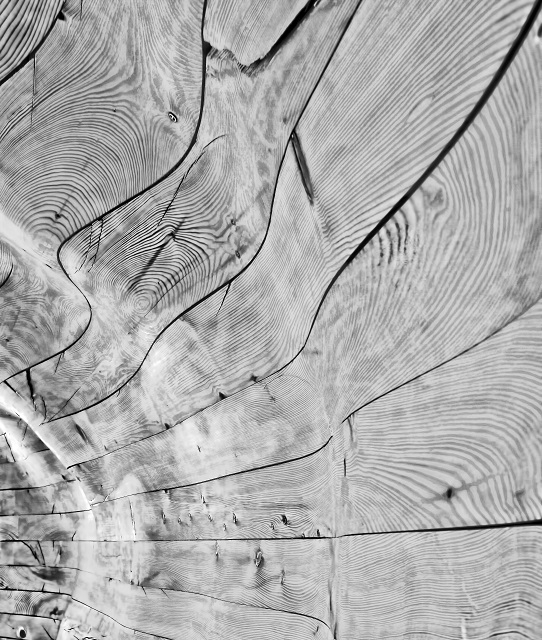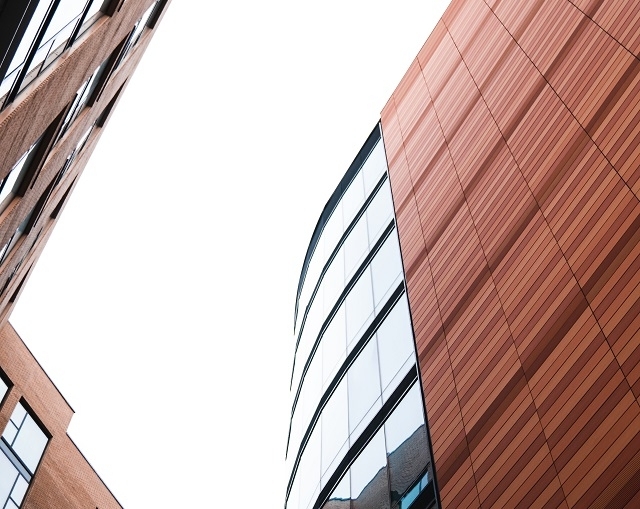Is timber cladding easy to maintain?
Published: 17/02/20 By: Mike Bekin
Timber cladding unlocks a number of benefits for properties of all types and clients with all tastes and budgets. We honestly think exterior timber cladding excels on all fronts – including aesthetically, environmentally, and practically.
The use of such natural material ensures a warm and comforting look and feel, which is further enhanced by its attractive grain and colour. The planet also benefits if you purchase your timber cladding from a responsible source certified by the FSC®.
Timber also carries a low carbon footprint compared to most other materials and can usually be reused or recycled when it reaches the end of its service life. Timber cladding also boasts excellent thermal and sound insulation as Doityourself explains:
“Timber is a naturally renewable resource, unlike some non-renewable construction materials. A minimal amount of non-renewable fossil fuels is required to produce timber compared to other construction materials. Timber is also 100% recyclable which makes it one of the most environmentally friendly materials you can use in for the construction of your home.”
The use of timber cladding has been linked to several health benefits, including reduced stress levels and increased productivity. This strong yet lightweight material is an excellent investment for both protective and decorative purposes. With a wide range of timber cladding profiles to choose from, you’re certain to find the right timber cladding for your design and budget.
In this blog post, we’re taking a closer look at another advantage that makes timber cladding the first choice across many building projects – its easy maintenance.
Where durability counts
Timber cladding can be built to last many decades. Its durability is a major advantage for those looking to use it on both large and small-scale projects. Timber cladding can be made using a wide choice of wood types, including softwood, hardwood, and modified wood, the latter of which involves the modification of low-durability species to achieve enhanced qualities – including flame retardancy and long-term preservation, minimising splitting, warping, and rot. Surface finishes can also be applied to not only enhance and alter the cladding profile’s appearance but provide additional protection.
Most professionals choose to treat cladding before it’s installed, thus ensuring a consistent finish. It is, however, important to note that opaque coatings, such as painted finishes, tend to require increased maintenance. Instead opt for a protective coating that’s UV and water-resistant, such as a stain that lets the wood breathe.
Thanks to its high level of durability, timber cladding requires very little maintenance over time. Maintenance and repairs that are needed can, however, be completed easily and affordably.
Timber cladding maintenance musts
Whilst no natural product is completely maintenance-free, well treated, high quality, and professionally-installed timber cladding comes close. Don’t leave maintenance and repair too late though.
Inconsistent weathering, growth of mould or algae, and changes in size and shape should all be resolved as soon as they’re spotted to ensure your cladding remains in the best possible condition.
Regular cleaning with a pressure washer is another great way to keep mould and discolouration at bay, without damaging the cladding with harsh chemical treatments.
 Treating your timber cladding with one of our OrganoWood® treatments is another must for easy maintenance. Using our OrganoWood® 01 Protection and OrganoWood® 02 Repellent gives the timber underneath vital protection from a number of common cladding issues.
Treating your timber cladding with one of our OrganoWood® treatments is another must for easy maintenance. Using our OrganoWood® 01 Protection and OrganoWood® 02 Repellent gives the timber underneath vital protection from a number of common cladding issues.
The water-based OrganoWood® 01 delivers essential protection against rot attacks, whilst also adding flame protective properties. This product also speeds up the natural weathering process, so your cladding will look silvery grey quicker and more consistently.
OrganoWood® 02 is also water-based and has been specially formulated to repel water and dirt. 02 is a further layer of protection, working in a way that is similar to Goretex(r). It protects the cladding from the effects of prolonged exposure to water (and the fungi spores it carries), which inevitably causes timber to move, distort, and therefore age.
In addition, treatment guarantees a superhydrophobic surface that inhibits moisture penetration to prevent moisture movement, crack formation and uneven greying. All of this helps the longevity of your beautiful timber cladding.
Both OrganoWood® treatments can be applied by brush. You can find out more about our OrganoWood® treatments here.
Give your cladding the best start by choosing high quality, sustainable timber. Contact us direct for a quotation, or view our timber cladding profiles page for further information.
Tags: Cladding, Maintenance, Timber
Categories: Insights
